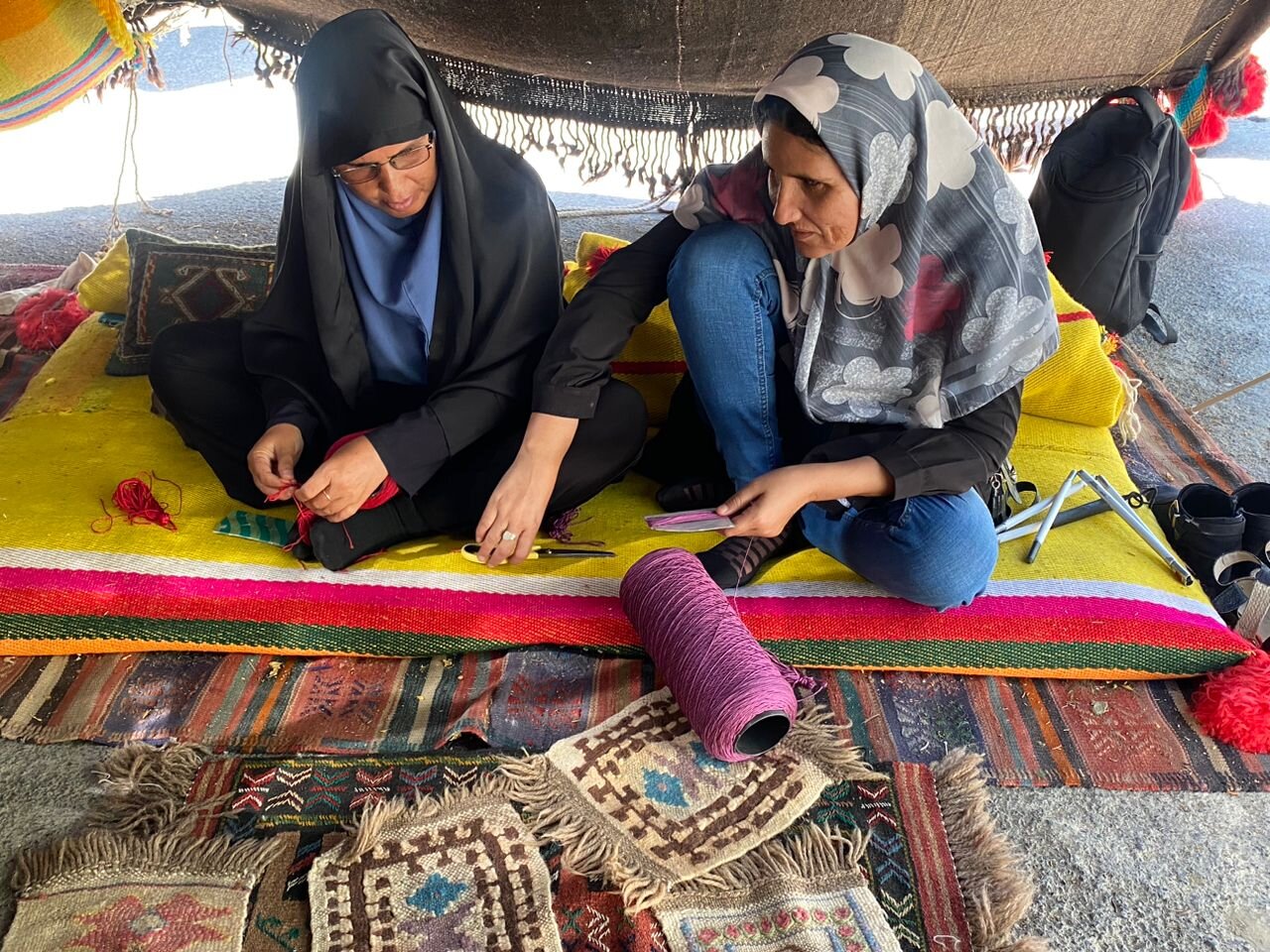Ray of hope: supporting women with disabilities
March 8, 2023

Pari Aslani (left), 42 lives in Chahar Borj Village
برای خواندن متن فارسی اینجا کلیک کنید
Pari Aslani, a talented woman who is visually impaired comes from a challenging past filled with overcoming adversities because of her disability. She is 42. Lives in Chahar Borj village in North Khorasan province and holds a bachelor’s degree in Psychology. When the COVID-19 pandemic started, Pari lost hope, and not just once but on multiple occasions she wanted to end her life as she saw no future ahead of her.
“When I met Pari, she was hopeless, but I saw the spark in her. I listened to her life story. Just because Pari has a type of disability, it does not mean that she should be deprived of a normal life. I asked her if she was eager to make a change and she accepted,” says Zahra.
Zahra Ghezel is an entrepreneur philanthropist in the field of handicrafts and is from Southern parts of Esfarayen city in North Khorasan province which was among the Carbon Sequestration Project (CSP) pilot sites. With particular attention to human capital investments, many training sessions on environment, vocational skills and partnership were held in this area and as a result, many local people specifically women acquired new skills. Three centralized workshops assisted by CSP were inaugurated in the area which has led to the improvement of women workers’ livelihoods including Pari’s.
Pari learned how to make handicrafts; first with simpler tasks such as making tassels but soon she progressed in her job and could make money during the pandemic by weaving. Today, Pari continues to weave with love. She is supporting her family, especially her father who is suffering from Alzheimer’s. She took her little sister Monir, who is also visually impaired, to work and taught her how to weave and work in a team as she did not want her to be isolated at home.
“I was thinking about ending my life and everything was dark but since the day I met Zahra and got familiar with the project, light has come back to my life. For the first time in my life, I dared to plan for my future with the hope to save money and be financially independent. I was the first woman in my village who went to university and integrated into society,” says Pari.
Pari has prevailed over the challenges that life threw at her. She is now a supervisor at one of the workshops where she first learned how to weave and is working with 15 other women who are either heads of the household or living with disability.
“I want to continue my studies and use my full potential to help women who have the same condition as I do, so that people see our potential and see us as capable people and not judge us because of our disability” Pari says. “Disability is not a barrier; if the society supports me and other individuals living with disability, they will see that we have a lot to offer. Persons with disabilities should be recognized as equal members of the society” she added.
Art works and workshop of visually impaired women and women headed households
It was in 2003 when the United Nations Development Programme (UNDP) with support from the Global Environment Facility (GEF) initiated the first phase of “Carbon Sequestration Project” (CSP) in South Khorasan province situated in east of Iran.
The project aimed to sequester atmospheric carbon in arid and semi-arid areas of Iran and improve the socio-economic status of local communities using a community-based natural resources development approach. CSP was implemented by the Natural Resources and Watershed Management Organization (NRWO) together with UNDP.
Some of the project beneficiaries were visually impaired but they all had lights in their hearts that were put out by the COVID-19 pandemic and its drastic impacts on their lives and livelihoods. With the goal of supporting and economically empowering vulnerable groups including women and people living with disability, the project provided skills training and organic material for making handicrafts and supported connecting the local producers and their environmentally sustainable products to a wider market.
UNDP through its projects across the country will continue to work with national and international partners to address the socio-economic needs of vulnerable groups.

 Locations
Locations